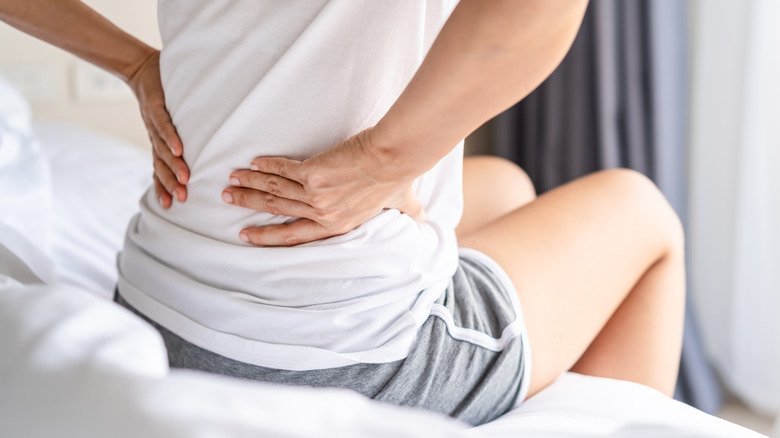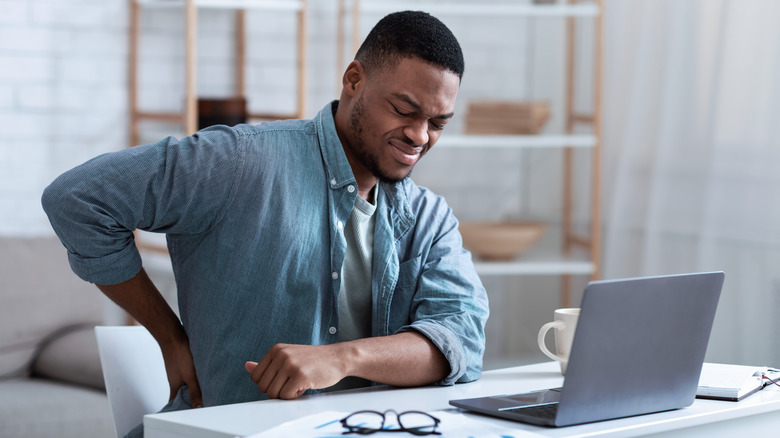If You Experience Back Pain When You're Sick, This Could Be Why
No one likes getting sick. Catching a cold or getting the flu comes with many potential symptoms including congestion, a runny nose, a sore throat, and fever. If you have also experienced back pain while being sick, you might have wondered why this uncomfortable symptom was added to the list of things you had to deal with. Back pain is actually pretty common when you get sick (via Dr. Stefano Sinicropi).
There are a few reasons why you may experience back pain when you're sick. First, your body is fighting off an infection, which can lead to inflammation. This inflammation can cause the muscles in your back to tense up, leading to pain. Specific illnesses, like pneumonia, affect the lungs and can cause discomfort in the back area. When you're sick, you may also not be getting enough rest or fluid. This can lead to dehydration, which can also cause muscle pain. You may also cough a lot when you're sick, which can strain the muscles in your back and cause them to ache. Finally, some illnesses (like the flu) can cause a high fever. This can cause your muscles to ache as well.
Other potential causes of back pain
Back pain is an extremely common ailment, even when you aren't sick. There are many reasons you may be experiencing back pain. One possible cause of back pain is muscle strain (via Mayo Clinic). This can happen if you lift something heavy, or if you overuse your muscles. Muscle strain can also occur from poor posture. If you sit or stand in an awkward position for a long period of time, it can put strain on your back muscles and cause pain. Another potential cause of back pain is a herniated disc. This happens when one of the discs in your spine becomes ruptured or damaged. A herniated disc can be very painful, and can even lead to nerve damage.
Other potential causes of back pain include lifestyle triggers like slouching at your desk, lifting heavy objects incorrectly, and not exercising regularly (via WebMD). Women who are pregnant often experience back pain, as well as people with arthritis and osteoporosis. If you're experiencing back pain, talk to your doctor to get a diagnosis and treatment plan.


